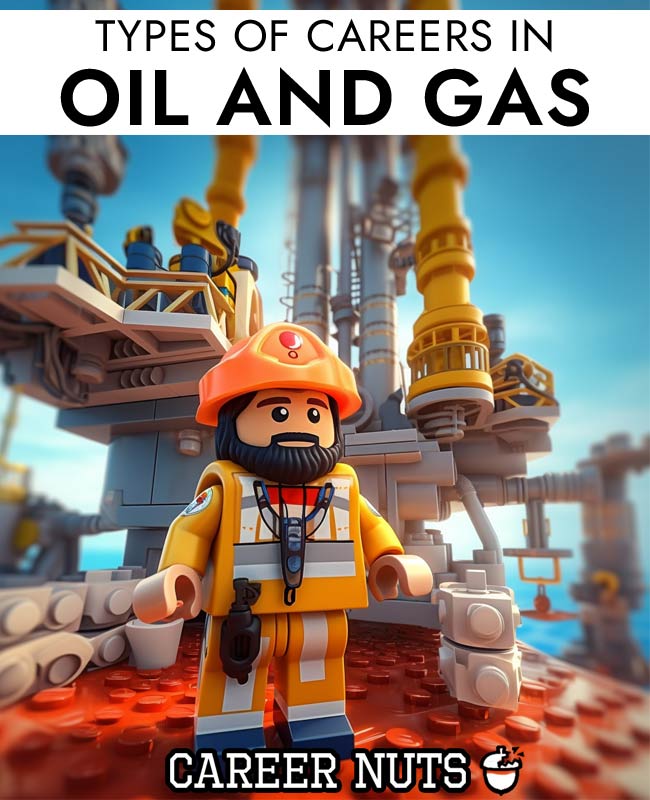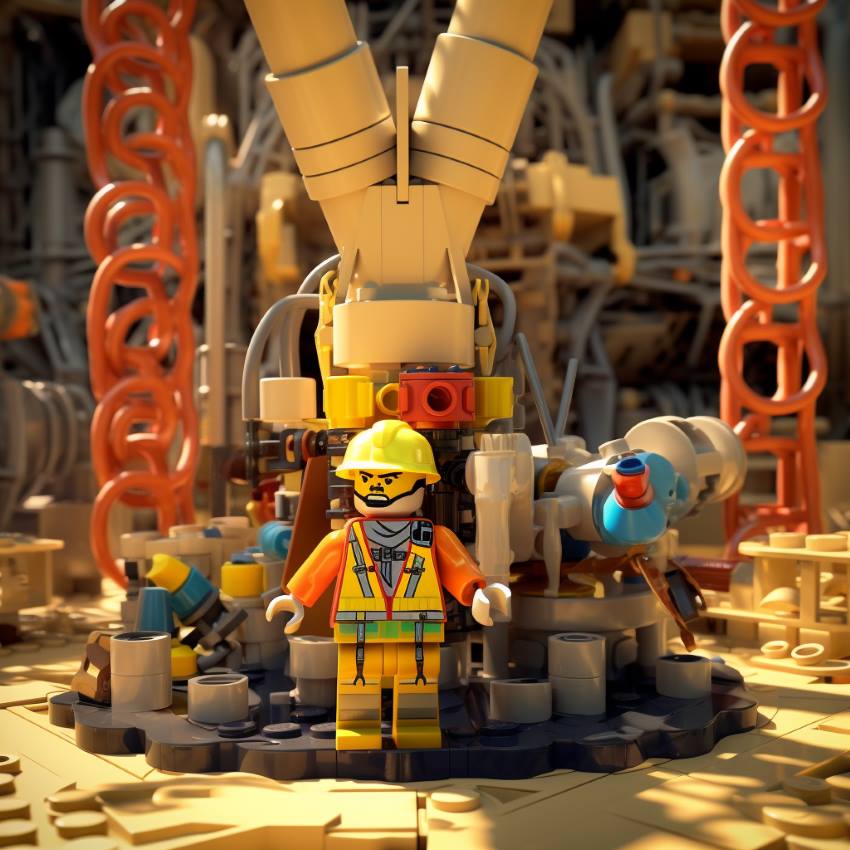Explore careers in oil and gas industry. From engineers to technicians, find your niche and contribute to industry growth.

In the fast-paced and ever-evolving world of the oil and gas industry, a diverse range of job opportunities awaits those seeking a career in this dynamic sector. Oil and gas jobs encompass a multitude of roles that play integral parts in the exploration, extraction, production, and distribution of these valuable resources. From drilling engineers and production operators to geoscientists and project managers, each position brings unique skills and expertise to the table, ensuring the smooth operation and growth of the industry.
Education and qualifications vary depending on the specific role, with degrees in engineering, geology, finance, or business administration often being beneficial. Additionally, proficiency in industry-specific software, tools, and technologies is crucial for success in oil and gas jobs. By embracing innovation, adhering to safety standards, and leveraging their knowledge, professionals in these roles contribute to the continued advancement and sustainability of the oil and gas industry.
Oil and Gas Industry Jobs in Drilling and Exploration
Drilling Engineer
Drilling engineers oversee the planning, design, and execution of drilling operations. They ensure the safe and efficient drilling of oil and gas wells, analyzing geological data and coordinating drilling activities.
A bachelor’s degree in petroleum engineering or a related field is typically required, along with strong problem-solving skills. Drilling engineers utilize software such as drilling simulation tools, well design software, and data analysis programs to optimize drilling operations.
Geologist
Geologists play a crucial role in identifying potential oil and gas reserves. They study the Earth’s structure and rock formations to locate hydrocarbon deposits. Geologists provide valuable insights on the viability and commercial potential of exploration sites.
A bachelor’s or master’s degree in geology, along with field experience, is usually required. They utilize advanced software and tools for geological modeling, seismic interpretation, and reservoir analysis.
Mud Logger
Mudloggers monitor drilling operations, examining drilled cuttings and fluid samples to identify formations and detect hydrocarbon presence. They record data and analyze it in real-time, providing important information for well evaluation.
A background in geology or earth sciences is beneficial for this role. Mudloggers work with specialized software and analytical tools to interpret data and generate reports for drilling engineers and geologists.

Well Testing Engineer
Well testing engineers conduct flow tests to evaluate the productivity and characteristics of oil and gas wells. They design and implement testing programs, analyze data, and provide recommendations to optimize production.
A bachelor’s degree in petroleum engineering or a related field is typically required. Well testing engineers utilize specialized equipment and software for pressure transient analysis, well testing simulations, and data interpretation.
Oil & Gas Jobs in Production and Operations
Production Engineer
Production engineers focus on maximizing oil and gas production from wells. They monitor well performance, identify production issues, and develop strategies to optimize production rates. A degree in petroleum engineering or a related field is common for this role. Production engineers employ production optimization software, data analysis tools, and surveillance systems to ensure efficient operations.
Operations Supervisor
Operations supervisors oversee day-to-day activities on drilling rigs or production sites. They manage personnel, equipment, and resources to ensure safe and productive operations. This role requires strong leadership and communication skills, along with experience in the oil and gas industry.
Operations supervisors utilize various software applications for production monitoring, reporting, and operational planning.
Process Engineer
Process engineers are responsible for designing and optimizing oil and gas processing facilities. They develop and implement efficient processes for extracting, refining, and treating hydrocarbons.
A degree in chemical engineering or a related field is typically required. Process engineers use process simulation software, engineering design tools, and data analysis platforms to optimize plant performance and ensure compliance with safety and environmental standards.
Pipeline Operator
Pipeline operators monitor and maintain the vast network of pipelines used to transport oil and gas. They perform regular inspections, handle maintenance tasks, and respond to emergencies.
A high school diploma or equivalent is often required, along with specialized training in pipeline operations. Pipeline operators use supervisory control and data acquisition (SCADA) systems, leak detection tools, and asset management software to ensure the integrity and safety of pipelines.

Types of Jobs in Oil and Gas Industry for Health, Safety, and Environmental (HSE)
HSE Manager
HSE managers are responsible for ensuring compliance with health, safety, and environmental regulations in the oil and gas industry. They develop and implement safety programs, conduct audits, and provide training to personnel.
A bachelor’s degree in occupational health and safety or a related field is common for this role. HSE managers utilize safety management systems, risk assessment software, and incident reporting tools to maintain a safe working environment.
Environmental Engineer
Environmental engineers assess and mitigate the environmental impact of oil and gas operations. They design and implement strategies to minimize pollution, manage waste, and comply with environmental regulations.
A degree in environmental engineering or a related field is typically required. Environmental engineers use environmental modeling software, impact assessment tools, and monitoring systems to ensure sustainable practices and environmental stewardship.
Safety Officer
Safety officers promote and enforce safety policies and procedures in the oil and gas industry. They conduct safety inspections, provide training, and investigate incidents. A background in occupational health and safety is beneficial for this role.
Safety officers may use safety management software, incident reporting tools, and training management systems to enhance safety practices and mitigate risks.
Emergency Response Coordinator
Emergency response coordinators develop and implement plans to address emergencies and ensure the safety of personnel and assets. They coordinate with various stakeholders, conduct drills, and provide training on emergency procedures.
Experience in emergency response and crisis management is essential for this role. Emergency response coordinators may utilize emergency management software, communication systems, and incident command frameworks to effectively handle emergencies.
Reservoir Engineering & Research
Reservoir Engineer
Reservoir engineers analyze subsurface data to estimate the reserves and behavior of oil and gas reservoirs. They develop strategies to maximize recovery and optimize production. A degree in petroleum engineering or a related field is common for this role.
Reservoir engineers use reservoir simulation software, well performance analysis tools, and data analytics platforms to model reservoir behavior and make informed decisions.
Reservoir Geologist
Reservoir geologists focus on understanding the geological aspects of oil and gas reservoirs. They analyze data, interpret seismic surveys, and provide geological models to reservoir engineers.
A degree in geology or a related field is typically required. Reservoir geologists work with specialized software for seismic interpretation, reservoir modeling, and volumetric calculations.
Reservoir Analyst
Reservoir analysts support reservoir engineers by performing data analysis, modeling, and optimization studies. They help interpret reservoir behavior and assess the impact of various factors on production.
A degree in petroleum engineering, mathematics, or a related field is beneficial for this role. Reservoir analysts use reservoir engineering software, data analysis tools, and programming languages to analyze data and generate insights.

Geophysicist
Geophysicists study the physical properties of the Earth to locate and characterize oil and gas reservoirs. They analyze seismic data, perform geophysical modeling, and interpret geological structures.
A degree in geophysics or a related field is typical for this role. Geophysicists utilize specialized seismic interpretation software, geophysical modeling tools, and data visualization software to understand subsurface conditions and guide exploration efforts.
Research Scientist
Research scientists in the oil and gas industry focus on developing new technologies, processes, and materials to enhance production and efficiency. They conduct experiments, analyze data, and collaborate with cross-functional teams.
A master’s or Ph.D. degree in a scientific field, such as chemistry, materials science, or engineering, is typically required. Research scientists utilize scientific modeling software, laboratory equipment, and data analysis tools to drive innovation and research advancements.
Also explore: Leading Oil and Gas Companies in the World
Oil and Gas Industry Jobs in Project Management
Project Manager
Project managers oversee the planning, execution, and completion of oil and gas projects. They coordinate with various stakeholders, manage budgets, and ensure project objectives are met.
A bachelor’s degree in engineering or a related field, along with project management experience, is typically required. Project managers may use project management software, scheduling tools, and collaboration platforms to efficiently manage projects.
Construction Manager
Construction managers are responsible for managing the construction and installation of oil and gas facilities, such as refineries, pipelines, and offshore platforms. They coordinate contractors, monitor progress, and ensure compliance with specifications and safety standards.
A degree in engineering or construction management is common for this role. Construction managers use project scheduling software, construction management tools, and quality control systems to deliver projects on time and within budget.
Cost Engineer
Cost engineers provide cost estimation and control services for oil and gas projects. They analyze project requirements, develop budgets, and monitor expenses throughout the project lifecycle.
A degree in engineering or a related field, along with knowledge of cost management principles, is beneficial for this role. Cost engineers utilize cost estimating software, project control tools, and financial analysis systems to manage project costs effectively.
Types of Jobs in Oil and Gas Industry for
Safety and Maintenance
Maintenance Engineer
Maintenance engineers are responsible for planning and executing maintenance activities in oil and gas facilities. They develop maintenance strategies, schedule inspections, and coordinate repairs. A degree in mechanical engineering or a related field is typically required. Maintenance engineers utilize computerized maintenance management systems (CMMS), reliability-centered maintenance tools, and condition monitoring techniques to optimize equipment performance and minimize downtime.
Instrumentation Technician
Instrumentation technicians install, maintain, and calibrate instruments and control systems in oil and gas facilities. They troubleshoot equipment issues, conduct inspections, and perform preventive maintenance. A degree or certification in instrumentation technology or a related field is beneficial for this role. Instrumentation technicians use specialized diagnostic tools, test equipment, and calibration software to ensure accurate and reliable measurements.
Safety Instrumented Systems (SIS) Engineer
SIS engineers design, implement, and maintain safety instrumented systems to prevent and mitigate process-related hazards in the oil and gas industry. They perform safety assessments, develop safety requirements, and verify system performance. A degree in engineering or a related field, along with knowledge of functional safety standards, is typically required. SIS engineers utilize safety lifecycle management software, safety analysis tools, and programming languages for system configuration.
As the oil and gas industry continues to evolve, the demand for skilled professionals in various job roles remains robust. From upstream exploration to downstream operations, oil and gas jobs offer exciting and rewarding opportunities for individuals with diverse backgrounds and expertise. Whether it’s drilling engineers maximizing production efficiency, HSE managers ensuring the safety of personnel, or research scientists driving technological advancements, each role plays a crucial part in the industry’s success.
By staying abreast of industry trends, leveraging cutting-edge technologies, and prioritizing safety and environmental stewardship, professionals in oil and gas jobs pave the way for sustainable growth and innovation. As aspiring professionals navigate their career paths in this dynamic industry, pursuing the required education, honing relevant skills, and embracing continuous learning will position them for success and contribute to the future of the oil and gas sector.
Also read: Oil and Gas Industry Jobs – [O&G Jobs]
To send your feedback, suggestions, or requests for including new career paths in oil and gas industry, please comment below or reach out to us on LinkedIn at CareerNuts.

Abhishek Sareen is a marketing professional with over 16 years of experience. He has extensive experience in international business and currently an independent consultant for steel tube, consumer goods and retail industry.
He is a passionate cyclist and participated in several endurance competitive events like MTB Himalaya. His interests are in behavioral psychology, economics and chess. He is a graduate in Computer Science and an MBA in Marketing. He completed his executive education from IIM-A in 2016 focusing on business strategy.